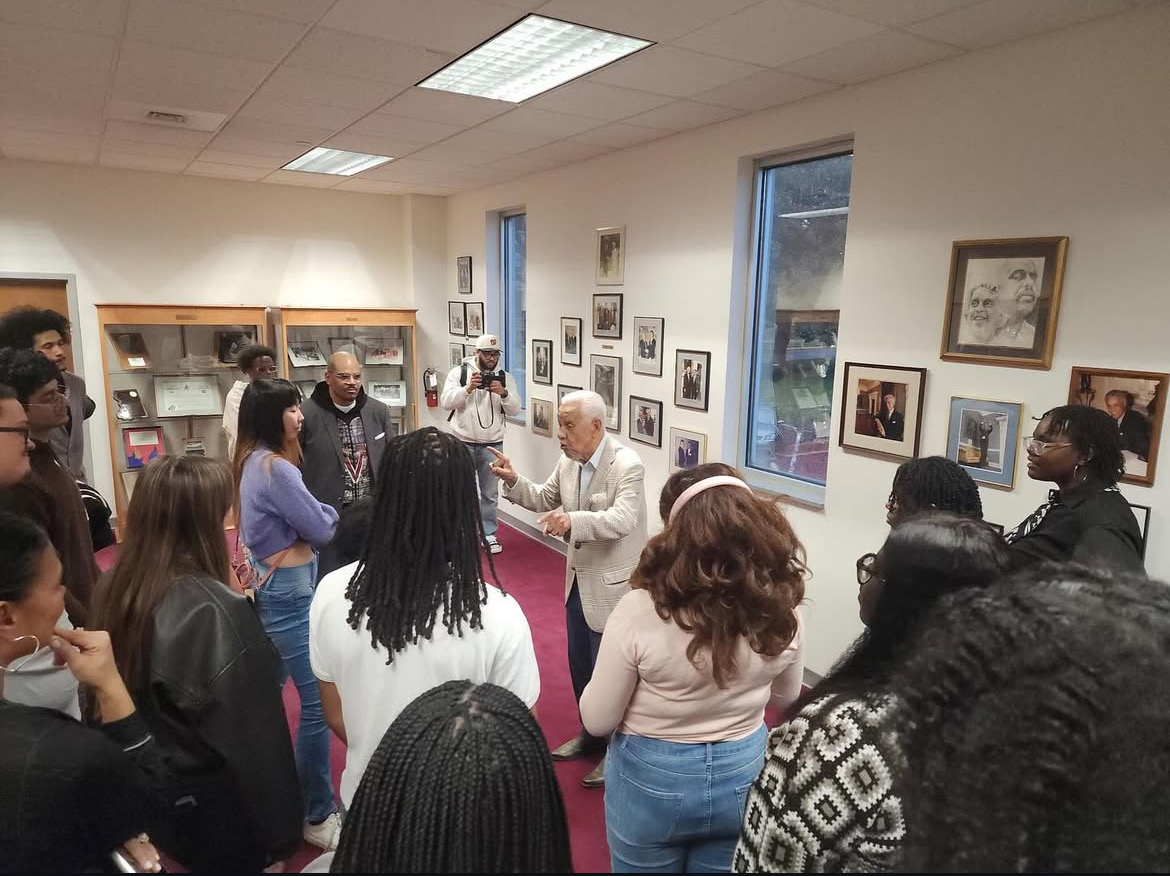What is the first thing you do upon arriving at Carleton College your freshman year? Apart from ogling at the gorgeous, verdant campus at the end of a summer, you take your school photograph (that, alas, for some, will be with them forever) and obtain your precious OneCard. The OneCard stands as your magic key to all of the buildings — residential, academic and social — allowing you to scan in and out at your heart’s desire (as long as it is before said building closes). On the contrary, removed from one’s OneCard, one finds themself a wandering stranger amidst campus. While this practice of needing your OneCard to access all buildings on campus may appear strange and avoidable, it quickly becomes an unthinking habit. However, something far darker may loom under the pretense of security and stability: a loss of community and spontaneity.
While it may seem like an age-old custom to whip out your wallet and slam it against the door access-readers, these sophisticated technologies only came around in the fall of 2007. The OneCards never appeared to bother anyone during their entrance onto campus; however, the idea of locking dormitories has been a point of contention within the community for years. In the 1990s, a constant debate on whether or not dormitories on campus ought to be closed off without a special key, known as “dorm locking,” raged on. In the Carletonian, articles like “Dorm locking will create more problems than it resolves” (April 26, 1996) and “Dorm-locking emprisons freedom” (October 25, 1996) abounded in the newspaper, all expressing a sentiment against the loss of particular freedoms. The concerns that were voiced throughout the 90s demonstrate that this was an contentious issue on campus that gradually faded from student discourse once “dorm locking” was enacted and this generation of Carls graduated.
Whether or not dorm locking has had a positive or negative impact on the security of the campus is not the point of this article; rather, I am interested in how, through advanced door access-readers, a loss in a larger Carleton community may have been infused into the campus culture. As freshmen, dorm locking compels students to remain in their own dormitories and choose to make friends through particular means such as New Student Week, their classes and specifically, their own floor. Dorm locking fosters a particular kind of belief in the minds of freshmen that students each have their respective gated community and you ought only to enter another residential dormitory if you have a worthwhile reason. Dorm locking diminishes the interactive engagement between dormitories and between the flow of people in and out who are simply looking to be a part of the larger Carleton web. This belief only becomes ingrained — a habit — as freshmen become sophomores and sophomores become juniors. By and large, Carls move to a different floor, perhaps get to know such individuals on said floor, but continue to find themselves rotating within whatever circle they found themselves in their freshman year. While I think this is part of a larger commentary on security on campus, I believe that dorm locking is one of the crucial mechanisms under which we have lost community.
Although dorm locking has hindered the development of community at Carleton, I believe that the traceability of OneCards has diffused a particular “rational” sentiment into the minds of Carls which deters them from participating in spontaneous, fun events. Gone are the days of an eyeless Carleton, a Carleton where individuals roam free without the burden of a watchful eye, ready to snatch any poor soul from engaging in some unstudious act. Carleton, in a sense, has become the Panopticon — an institution where it is impossible to feel as if you are ever inconspicuous. And so, that leads me to a set of questions: Does the knowledge of the fact that our whereabouts on campus are perceivable to an authority affect how we go about campus? How do Carls revel in shenanigans when their locations are known and can be used to punish them?
Alas, that which looms as the backdrop for all of this, the catalyst for enhanced security, is COVID-19 and the procedures that were enacted in the last several years. COVID-19 policy on campus, of course, had to be enacted in order to protect the community at large. Nevertheless, COVID-19 gravely changed the landscape and climate of Carleton College, in some ways that were rather harmful to campus culture. College cultures are always in a state of flux — everchanging to the pressing needs of its students, both upperclassmen and lowerclassmen. However, when you add a colossal event, such as the COVID-19 pandemic, which compels monumental changes to take shape, a campus is only capable of preserving traditions and ways of life through communicated memory. On campus, there now exists only the Class of 2022 who have ever known a full year prior to the confusion wrought from COVID-19. Of the many confusions, seclusion has been the most impactful on severing the relationships between classes. With the Class of 2022 graduating in over a month’s time, only classes born out of COVID-19 will be left. And that leaves me with a final question: Will the normalcy of heightened security and hindered privileges give way to the fighting spirit of youth, or will students, having no insight into the world that was, simply give in and maintain this loss of community and spontaneity?











Jane Doe • Apr 27, 2022 at 6:09 pm
Why anonymous? Are you worried about the thought police silencing you’re truth, which we have all failed to realize until now.